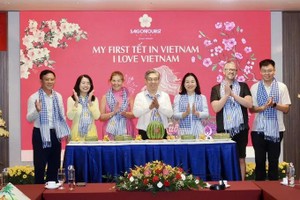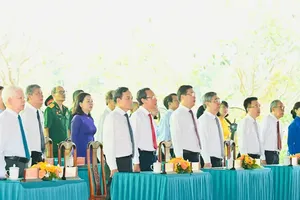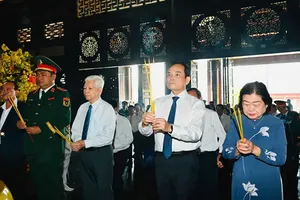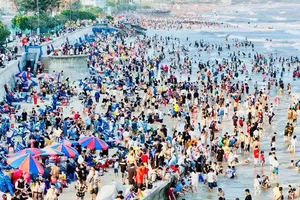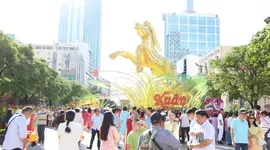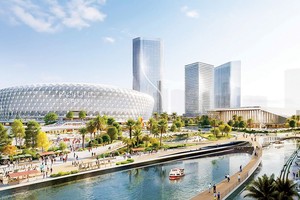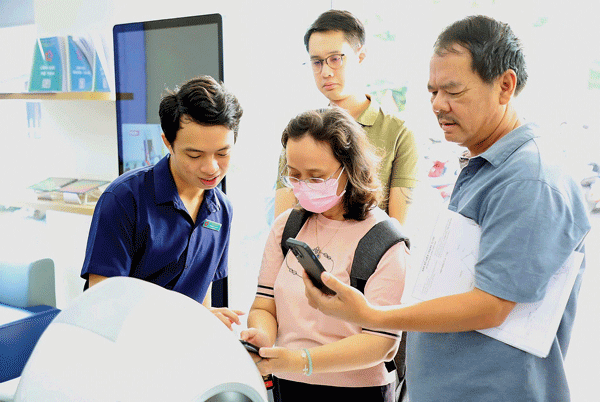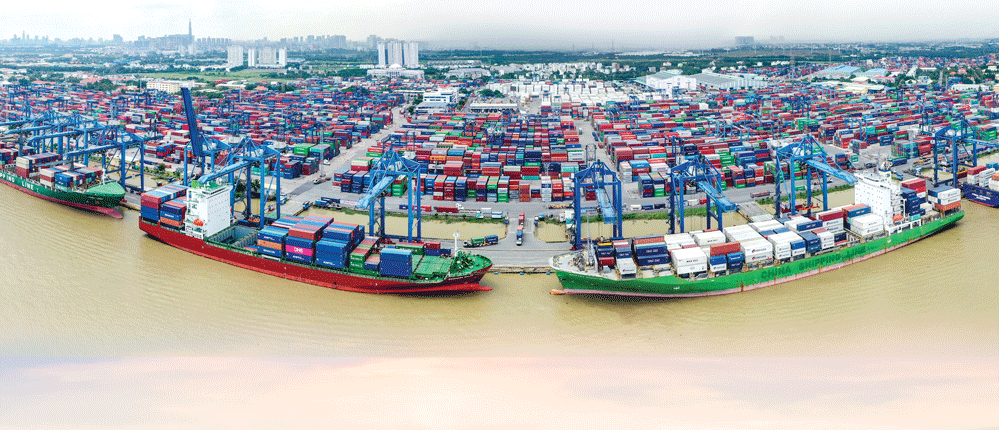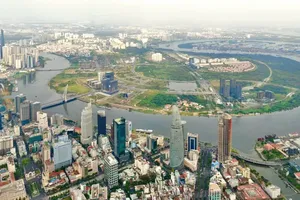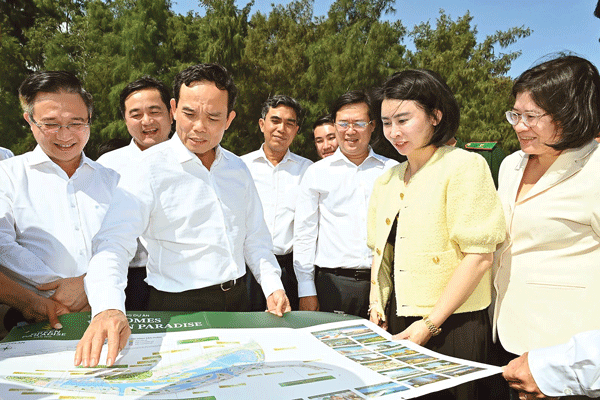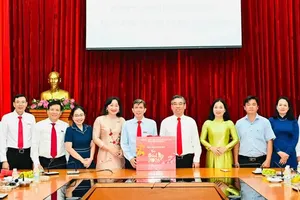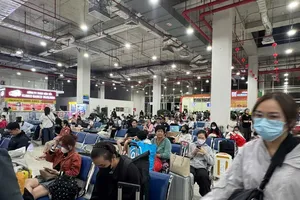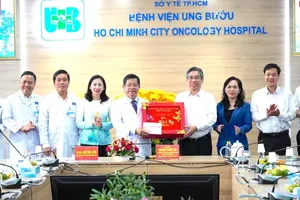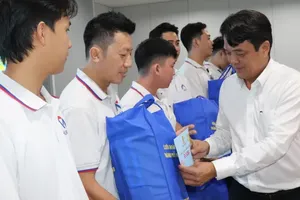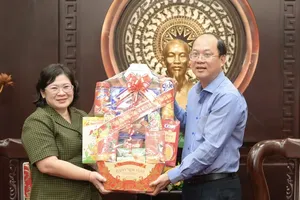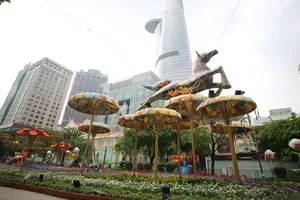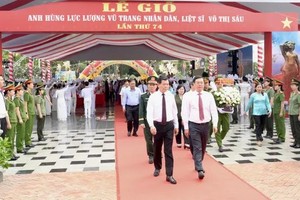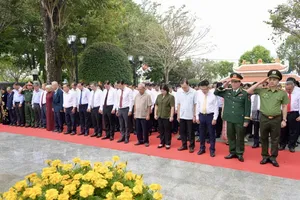The seminar was chaired by Mr. Phan Van Mai, Member of the Central Party Committee, Deputy Secretary of the HCMC Party Committee, and Chairman of the HCMC People's Committee.
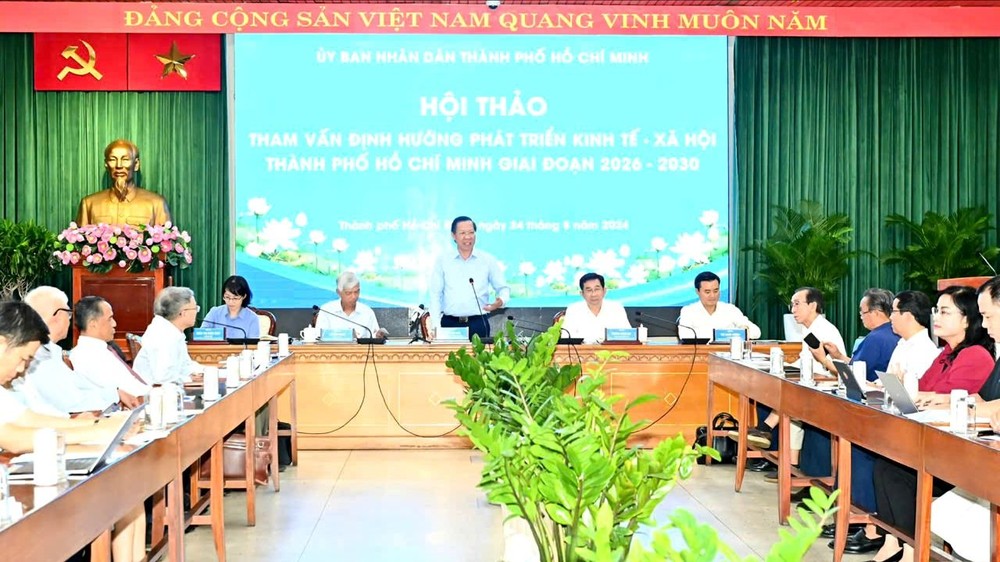
Escaping the middle-income trap
HCMC Chairman Phan Van Mai referenced insights from various organizations and experts, emphasizing that Vietnam has ten years left to decide whether it can break free from the middle-income trap. Therefore, the city should outline strategic socio-economic plans, tasks, and solutions through 2030. These efforts will not only fulfill the current term's objectives but also establish a foundation for the city's development by 2035, contributing to the nation’s efforts to overcome the middle-income trap.
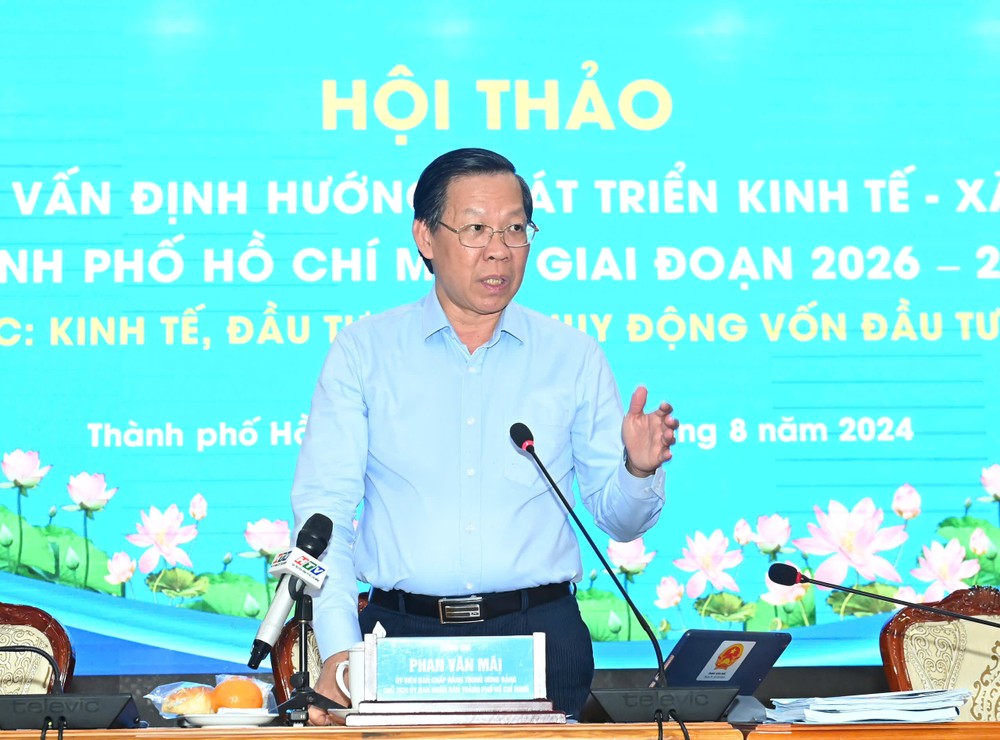
He called on participants to provide input and propose solutions to achieve the term’s goals while addressing key strategic bottlenecks and laying the groundwork for future development.
Mr. Nguyen Khac Hoang, Director of the HCMC Statistics Office, emphasized that increasing labor productivity is essential for escaping the middle-income trap. However, in recent years, the city’s labor productivity has declined, falling below the national average and reaching a saturation point. Without strong incentives, further productivity gains will be difficult to achieve.
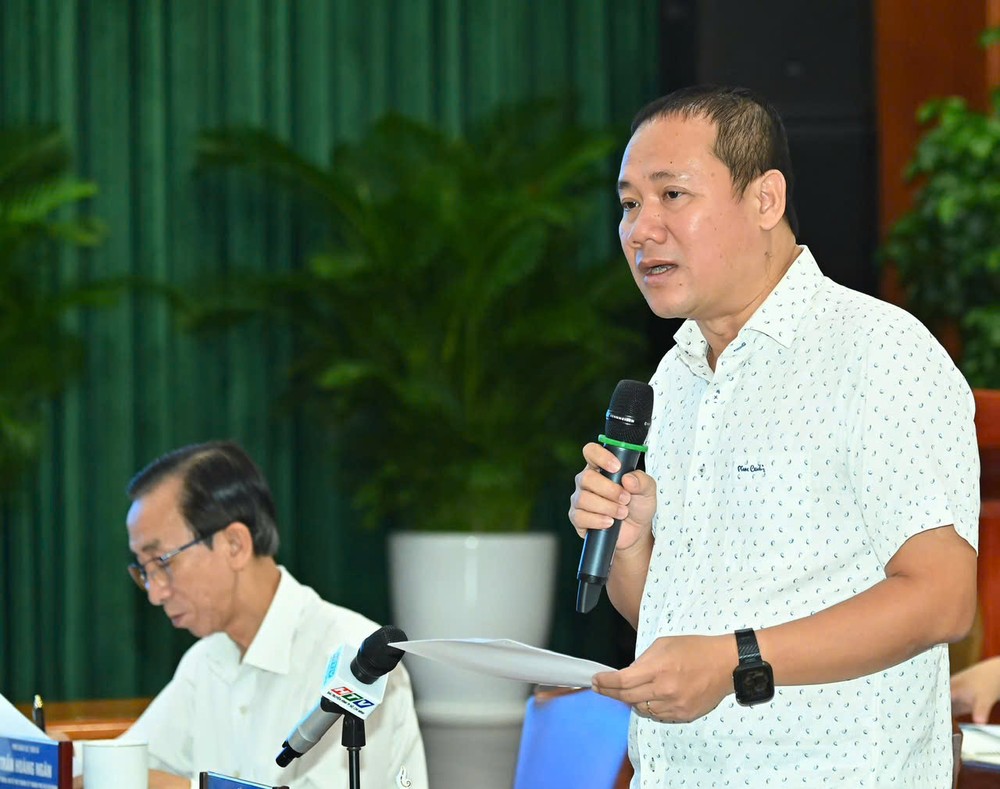
He recommended urgently restructuring export processing zones and industrial parks, attracting leading enterprises, and reassessing key industries. Priority should be given to sectors with growth potential, such as commerce, logistics, cultural industries, financial centers, tourism, healthcare, and education.
Dr. Vu Thanh Tu Anh, Director of the Fulbright School of Public Policy and Management, calculated that for HCMC to escape the middle-income trap, it must maintain an economic growth rate of 9-9.5 percent. Achieving this level of growth requires making the industrial sector the top priority.
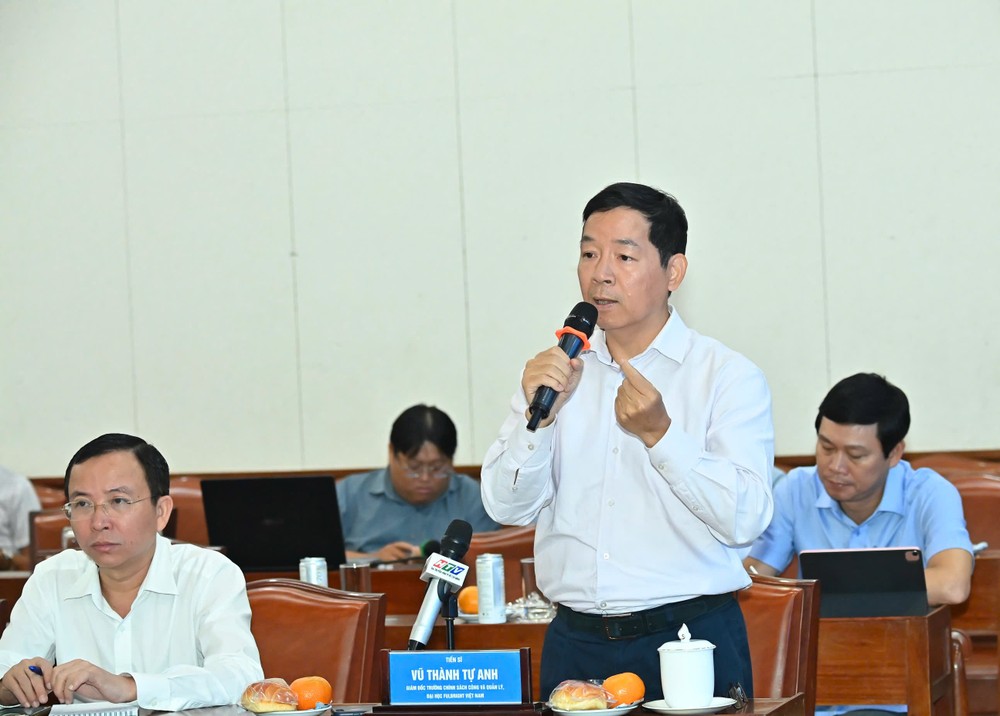
However, HCMC’s economic structure shows clear signs of declining industrial production, making it crucial for the city to refocus on industrial development. Technology must be at the heart of this growth, especially disruptive technologies like AI and energy.
Dr. Vu Thanh Tu Anh pointed out that AI will reshape cities within the next 5-10 years and recommended that HCMC develop a coherent AI strategy. He also suggested that the city adopt a corporate diplomacy strategy to attract major corporations and emphasize the role of private investment.
Dr. Tran Du Lich noted that while some socio-economic targets for the 2021-2025 period might not be achieved, the city has made significant progress in addressing breakthrough factors that drive sustainable development, particularly in institutional frameworks and infrastructure. These efforts establish a foundation for long-term growth, moving toward building a modern and civilized city.
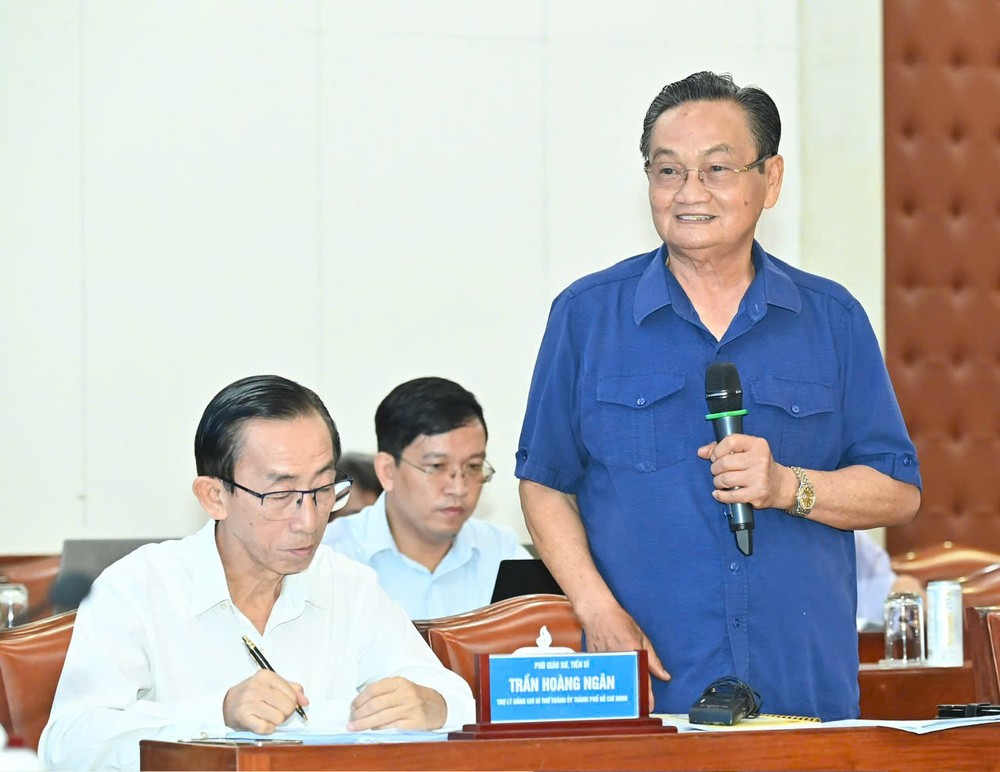
Over the next five years, Dr. Tran Du Lich suggests that HCMC should capitalize on its political stability and the opportunities presented by the Fourth Industrial Revolution to attract investment and boost growth. The city should also prioritize urban beautification and development, including addressing all housing along and near canals and improving unsafe residential areas with inadequate living conditions.
Furthermore, the city should put forward special mechanisms to accelerate urban infrastructure investment, with a focus on constructing 183 kilometers of urban rail. It should also refine its governance frameworks to transition towards a more effective and efficient urban administration model. “To achieve the development vision for 2045, we must embrace new thinking and solve the inverse problem with different mechanisms and approaches,” Dr. Tran Du Lich stressed.
Dr. Vu Thanh Tu Anh echoed this view, pointing out that HCMC's current growth model has reached its limits and lacks further momentum. Therefore, the city must broaden its focus beyond economic growth to include environmental and social metrics. Addressing institutional bottlenecks is crucial, as is solving the inverse problem aligned with the objectives of Resolution 31. This means identifying key growth drivers, determining the necessary institutional changes, and removing barriers to ensure proactive and effective implementation.
Associate Professor Dr. Tran Hoang Ngan, Assistant of the Secretary of the HCMC Party Committee, highlighted that the key to the city’s future development lies in having a superior, transparent, and open institutional framework. Associate Professor Ngan specifically called for the prompt enactment of a Special Urban Law.
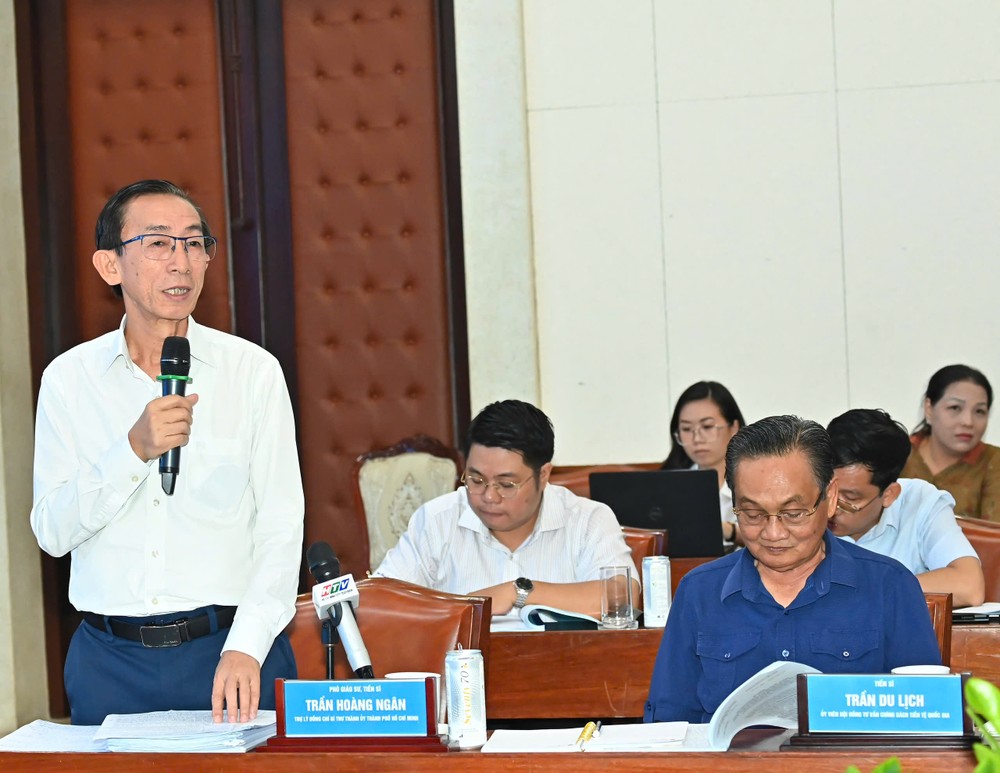
HCMC should focus on infrastructure development, improving human resources, and supporting business growth. It is vital to leverage Resolution 98 of the National Assembly to create supportive mechanisms for businesses and enhance the leadership role of State-owned enterprises in the market.
“If we establish a cohesive institutional and socio-economic infrastructure, coupled with high-quality human resources, excellent healthcare, stable political security, and safe social conditions, investment in HCMC will be highly attractive,” Associate Professor Dr. Ngan explained. He recommended that the city prioritize the disbursement of public investment funds and infrastructure investments to serve as a catalyst for socioeconomic development from 2026 to 2030.
Maintaining a 9 percent growth target
HCMC Chairman Phan Van Mai highlighted the importance of expert opinions in preparing the city's socioeconomic documents for the 12th Congress of the HCMC Party Committee. The city will continue to seek and integrate expert feedback to create the most effective documents, setting ambitious goals to lead the way and help the nation escape the middle-income trap.
He also urged departments, agencies, experts, and scientists to further research and refine the socioeconomic documents, ensuring that each component represents a clear task supported by practical conditions for maximum feasibility.
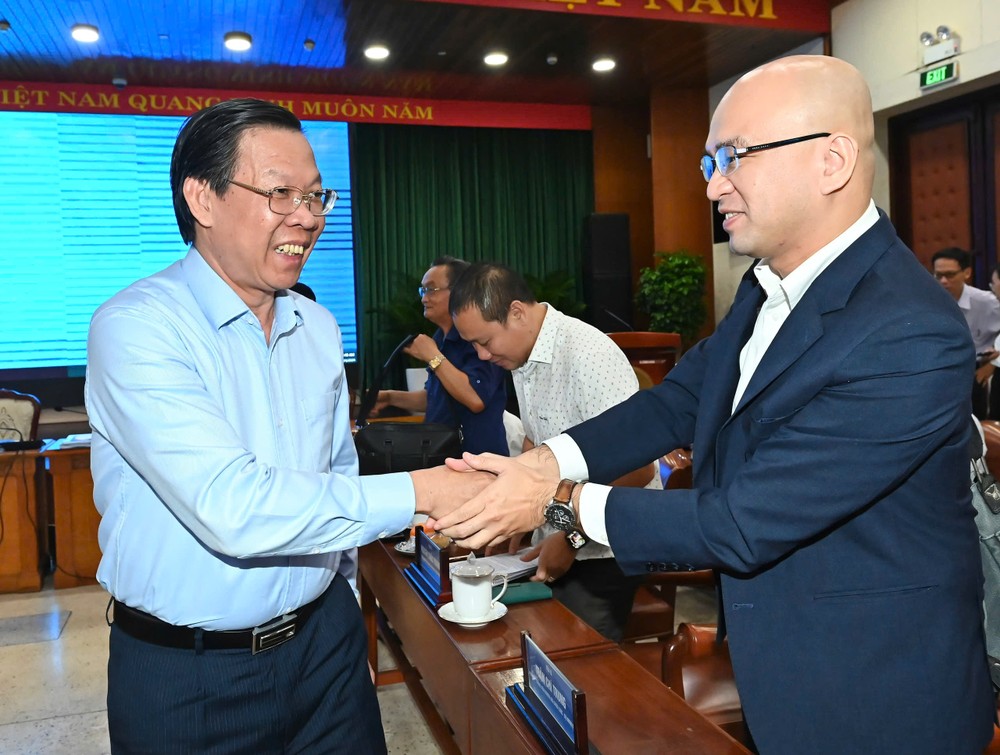
Chairman Phan Van Mai reaffirmed the city’s commitment to maintaining an economic and social growth rate of approximately 9 percent for the 2025-2030 period. Achieving this will require a series of tasks and initiatives, supported by a suitable institutional framework and policy mechanisms to attract investment and enhance investment absorption through substantial reforms in administrative systems and workforce development.
Additionally, the city must restructure its economy to focus on high-tech industries, modern services, and high-value-added sectors. It is crucial to prioritize specific tasks and projects to concentrate on through the remainder of the current term and into the next.
Chairman Phan Van Mai acknowledged that the upcoming period presents significant challenges for the city. He emphasized the need for strong political commitment, clear priorities, and breakthrough, coordinated solutions to achieve the expected results. However, he is confident that HCMC has the conditions necessary to reach its goals.
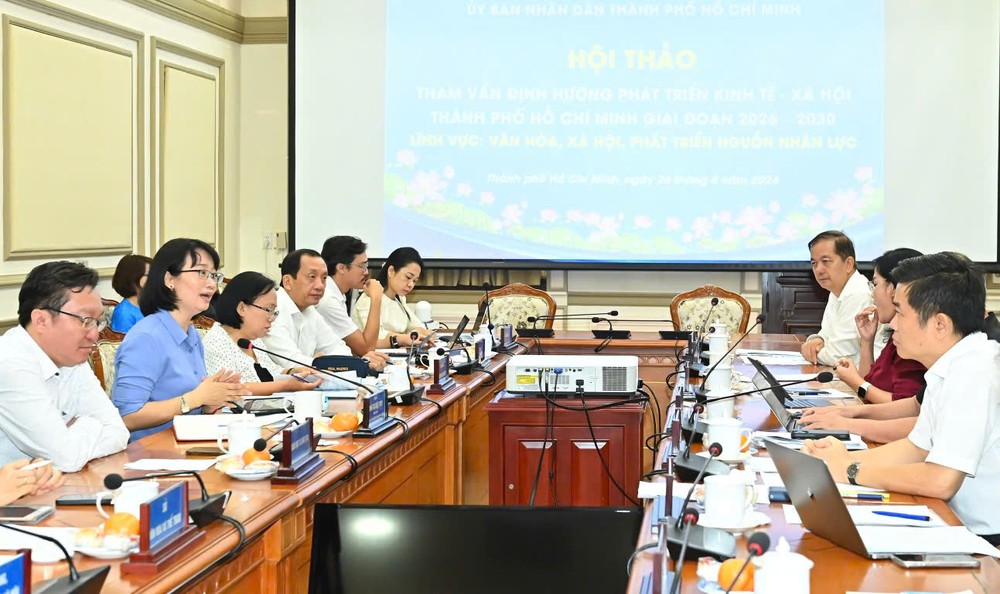
Associate Professor Dr. Vo Tri Hao, a senior expert at the Institute of International and Comparative Law, University of Economics and Law, Vietnam National University, HCMC:
HCMC should leverage its strengths in healthcare, education, and finance while developing mechanisms to mobilize financial resources with high returns and low risks. To establish itself as a financial center, the city must address investor risk concerns by demonstrating effectiveness and reducing risks to build investor confidence. Additionally, improving the institutional framework for attracting investors is crucial. Although this may be beyond the city's authority, HCMC could propose the creation of a free trade zone to attract financial investment.
Dr. Thai Thi Tuyet Dung, from the University of Law, Vietnam National University, HCMC:
HCMC is one of the 30 megacities worldwide. While some megacities in Japan, China, and Indonesia have implemented specific policies for their unique status, HCMC lacks such policies. For long-term planning, the city should consider a law on urban governance or a special urban law tailored specifically for it. This law should address the governance structure, principles of delegation and authorization, urban management policies, resource mobilization, regional development linkages, and pilot new urban organizational models. Especially, stronger delegation of authority is needed.
Associate Professor Dr. Tran Thi My Dieu, President of Van Lang University:
In HCMC's development strategy, a key focus must be on making the city a desirable place to live. To achieve this, environmental protection and sustainable development are top priorities, with clear goals and vision. The city should aim for a higher level of environmental protection compared to its economic development, ensuring that environmental conditions are at least equal to or better than those in cities with similar economic levels. Key priorities include addressing issues such as flooding and emissions. Universities can play a crucial role by providing scientific and technological solutions and resources to support these objectives.
